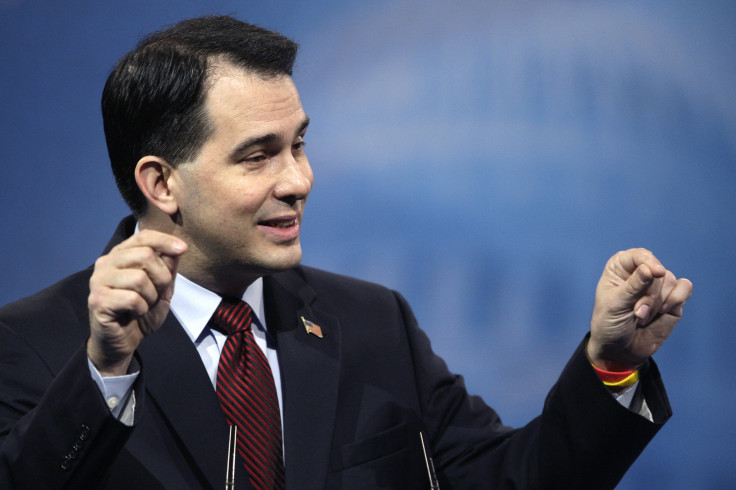Scott Walker Wins Wisconsin Governor Race: Incumbent Re-Elected Over Democrat Mary Burke

Incumbent Republican Wisconsin Gov. Scott Walker was expected to defeat Democratic challenger Mary Burke Tuesday to win a second term in office. Walker's projected victory came after polls released ahead of the election suggested Wisconsin's gubernatorial race was a toss-up.
Walker’s campaign touted his economic record, which includes the addition of more than 110,000 jobs and tax cuts of about $2 billion, the Associated Press reported. Walker has vowed to continue his policies if re-elected.
Nate Silver’s Five Thirty Eight blog gave Walker a 76 percent chance of victory, but placed the margin of victory at just 2.5 percent. A Marquette University poll published Oct. 29 projected that Walker would receive 50 percent of the vote, compared to 43 percent for Burke. Meanwhile, a Rasmussen poll published Oct. 22 predicted Burke would win with 49 percent of the vote.
ABC News projects Wisconsin Gov. Scott Walker beats Dem Challenger Mary Burke. #WIGOV
- John R Parkinson (@jparkABC) November 5, 2014Walker was elected to office in 2010 after eight years as Milwaukee County executive. In 2012, he became the third governor in U.S. history to face a recall election after his bid to limit the power of unions generated widespread outrage among the union leaders and Democratic leadership. Walker defeated Democratic Milwaukee Mayor Tom Barrett and became the first governor in U.S. history to win a recall election.
Prior to her gubernatorial campaign, Burke served as an executive at the Trek Bicycle Corp., which was founded by her father, Richard Burke. She served as Wisconsin’s secretary of commerce from 2005 to 2007 and is an incumbent member of the Madison, Wisconsin, school board.
Burke promised to focus on education and to add jobs to the state economy and criticized Walker for failing to make good on a pledge to add 250,000 jobs in his first term, the Wall Street Journal reports. She claimed Walker’s policies favor rich families over working-class households.
© Copyright IBTimes 2025. All rights reserved.






















